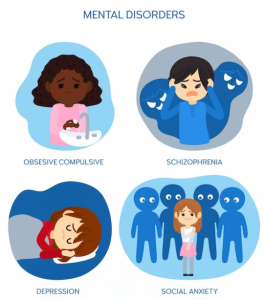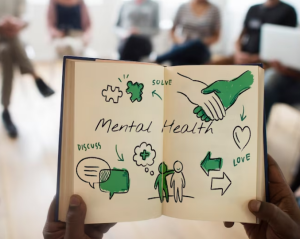Introduction
Attention-Deficit/Hyperactivity Disorder (ADHD) is a neurodevelopmental condition that affects both children and adults. While it’s commonly associated with young boys, ADHD in women often goes undiagnosed or misdiagnosed due to its unique presentation and societal expectations. In this article, we will explore the signs, symptoms, and treatments of ADHD in women, shedding light on a topic that needs more attention.
Understanding ADHD in Women
1. Prevalence and Misconceptions
ADHD affects approximately 5-10% of the population, but studies suggest that it is underdiagnosed in females. This is partly because women tend to display different symptoms than their male counterparts. The prevailing stereotype of a hyperactive young boy has led to many women with ADHD being overlooked or dismissed.
2. Subtle Signs and Challenges
Women with ADHD often exhibit less noticeable symptoms, making diagnosis challenging. Instead of hyperactivity, they might display inattentiveness, daydreaming, and disorganization. This subtlety can lead to struggles with time management, focus, and maintaining relationships.
Recognizing the Signs and Symptoms
3. Inattentiveness and Forgetfulness
Women with ADHD may have difficulty concentrating on tasks or conversations. They might frequently misplace items or forget important dates and events, leading to frustration and self-doubt.
4. Impulsivity and Risk-Taking
Some women with ADHD engage in impulsive behaviors, such as making hasty decisions or taking risks without considering the consequences. This impulsivity can have a significant impact on their personal and professional lives.
5. Emotional Sensitivity
ADHD in women can also manifest in heightened emotional sensitivity. They might experience mood swings, intense emotions, and difficulty regulating their feelings, often leading to internal conflicts.
6. Relationship Challenges
The challenges of ADHD can put a strain on relationships. Women might struggle with communication, forget important commitments, or appear disinterested, leading to misunderstandings and conflicts.
Diagnosing ADHD in Women
7. Seeking Professional Help
If a woman suspects she has ADHD or is experiencing significant difficulties in various aspects of life, seeking professional help is essential. A comprehensive evaluation by a healthcare provider or mental health specialist can lead to a proper diagnosis.
8. Challenges in Diagnosis
Due to the differences in how ADHD presents in women, misdiagnoses are common. Some might be diagnosed with anxiety, depression, or other mood disorders, further delaying proper treatment.
9. Tools for Diagnosis
Healthcare professionals use various assessment tools, questionnaires, and interviews to diagnose ADHD accurately. The process may involve collecting information from multiple sources, including family members and teachers.
Effective Treatments for ADHD
10. Medication
Medication is a common treatment for ADHD and can be effective in managing symptoms. Stimulants like methylphenidate and amphetamines are often prescribed to improve focus and attention.
11. Behavioral Therapy
Behavioral therapy, such as cognitive-behavioral therapy (CBT), can help women develop coping strategies for managing their ADHD symptoms. It teaches practical skills to improve time management, organization, and problem-solving.
12. Lifestyle Changes
Incorporating healthy lifestyle changes can also be beneficial for managing ADHD. Regular exercise, proper sleep, and a balanced diet can positively impact cognitive function and mood.
Living with ADHD
13. Self-Care and Acceptance
Women with ADHD must prioritize self-care and learn to accept themselves without judgment. Engaging in activities they enjoy and setting realistic goals can boost self-esteem.
14. Building a Support System
Having a strong support system is crucial for women with ADHD. Surrounding themselves with understanding friends, family, and mentors can provide encouragement and help navigate challenges.
Conclusion
ADHD in women is a significant and often overlooked issue. By understanding the unique signs and symptoms, seeking accurate diagnosis, and exploring various treatment options, women with ADHD can lead fulfilling lives. With the right support and strategies, they can harness their strengths and overcome challenges associated with the condition.
FAQs
- Is ADHD more common in men or women? ADHD is more commonly diagnosed in men, but research suggests that it is underdiagnosed in women.
- Can ADHD be outgrown? ADHD is a lifelong condition, but symptoms may change or become less severe with age.
- Can hormonal changes affect ADHD symptoms in women? Yes, hormonal changes during the menstrual cycle or pregnancy can influence ADHD symptoms.
- Is ADHD a learning disability? ADHD is not a learning disability, but it can interfere with academic performance and learning.
- Can women with ADHD have successful careers? Yes, women with ADHD can excel in their careers with appropriate support, accommodations, and self-care.



